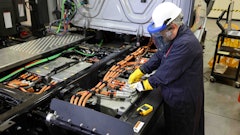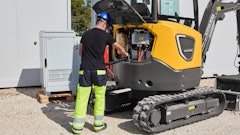
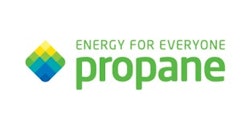
The Propane Education & Research Council (PERC) increases commitment to sustainability, joins the Association for the Advancement of Sustainability in Higher Education (AASHE) to encourage low-emission propane equipment use in higher education.
The Propane Education & Research Council announces its new membership in the Association for the Advancement of Sustainability in Higher Education, an association of colleges and universities working to create a more sustainable world. Through membership in AASHE, PERC will inform higher education institutions on the benefits of using clean, low-emission propane equipment as part of their sustainability initiatives.
“Propane is the leading alternative fuel in the U.S. and helps thousands of businesses, fleets, contractors, and consumers meet their economic and environmental goals,” said Roy Willis, PERC CEO and president. “We want to help bring the same fuel-efficient technologies to campuses through equipment demonstrations, incentives, and educational programs that will help AASHE members significantly reduce their carbon footprint and save money.”
AASHE enables colleges and universities to meet their sustainability goals by providing specialized resources, professional development, and a network for sharing information. Many AASHE resources are free to the public. There are over 800 AASHE members to-date.
“AASHE counts on the support of many innovative organizations, such as PERC, to fulfill our mission of creating a cleaner, greener and more sustainable planet, starting with college campuses,” said Stephanie A. Herrera, AASHE executive director. “AASHE business members support the sustainability movement by providing valuable products, services and resources to help move this vital community towards a better future.”
Through its AASHE membership, PERC plans to help campuses identify opportunities to convert gasoline- or diesel-fueled equipment to propane, including lawn mowers, vehicles, buses, and generators. According to Willis, the simple act of spec’ing alternative fuels like propane into contracts versus conventional fuels can make a big impact.
“The simple switch from a gasoline-powered mower to propane can reduce greenhouse gas emissions by up to 20 percent,” Willis said. “And that’s just one example – propane offers significant GHG and emission reductions in vehicles and other applications, too.”
For more information about AASHE and its free sustainability resources, visit www.aashe.org. For more information on PERC or to apply for available propane equipment incentives, visit www.propane.com.

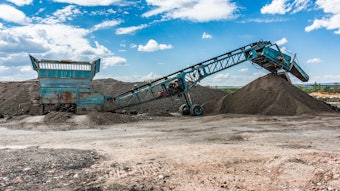
![Img 1707[56]](https://img.forconstructionpros.com/files/base/acbm/fcp/image/2023/04/IMG_1707_56_.6437076c97961.png?auto=format%2Ccompress&fit=crop&h=191&q=70&rect=0%2C462%2C1920%2C1080&w=340)








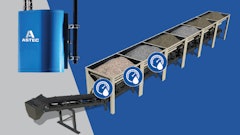



![Glp Porsche 072723 465 64ee42287c29e[1]](https://img.forconstructionpros.com/files/base/acbm/fcp/image/2024/03/GLP_PORSCHE_072723_465.64ee42287c29e_1_.65e88b8589b9c.png?auto=format%2Ccompress&fit=crop&h=135&q=70&rect=0%2C520%2C2250%2C1266&w=240)
